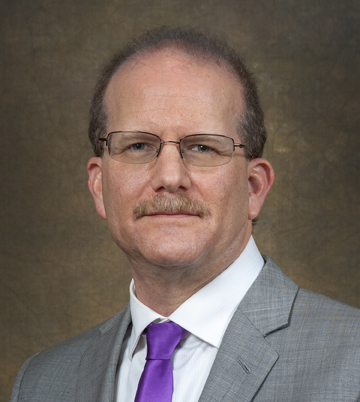Substance use disorder researcher Mark Greenwald, Ph.D., has won the Jack Ryan Award Endowed by the Dr. Morris S. Brent Fund, and will use the funding to support the doctoral project of M.D./Ph.D. student Tabitha Moses exploring transcranial magnetic stimulation to treat substance use disorders and chronic pain.
Dr. Greenwald is a professor and associate chair for Research in the Wayne State University School of Medicine’s Department of Psychiatry and Behavioral

Neurosciences.
The award is given annually by the School of Medicine’s Office of Research and Graduate Programs to a faculty member who submits a meritorious proposal for the conduct of research of importance to the medical field. The goal of the program is to encourage the generation of preliminary data to be used in an external grant submission.
Dr. Greenwald is the principal investigator on “Exploring the Feasibility and Efficacy of rTMS in a Healthy Population.”
Transcranial magnetic stimulation is a neuromodulation device that is U.S. Food and Drug Administration-approved for use in treating depression and obsessive compulsive disorder, and is being investigated for treating other conditions, including substance use disorders and chronic pain. TMS works by applying a safe electromagnetic field on the scalp, which can either increase or decrease neuronal communication and activity, depending on the mode of simulation.
“Although only approved for two disorders, there has been substantial research into the potential of TMS to treat a wide range of neuropsychiatric and neurological disorders. Neuromodulation techniques have been demonstrated to alter a wide range of behavior and responders, including executive functioning and responsiveness to stimulation,” Dr. Greenwald said.
The study aims to demonstrate the feasibility and efficacy of using rTMS protocols in Detroit and to develop an initial rTMS protocol in a sample of healthy controls to establish the feasibility and efficacy of using the technique to impact several carefully-selected cognitive, behavioral and physiologic measures. Participants will receive both rTMS stimulation and placebo stimulation (no electromagnetic field, but similar auditory and tactile sensations) across two visits. After these sessions, they will be asked to complete a variety of cognitive and behavioral tasks to examine the effect of rTMS on a specific brain region.
“This was motivated by Tabitha Moses -- she has completed her Year One and Year Two medical school curriculum, and is now a first-year graduate student in the Translational Neuroscience Program – and is the first step in a program of research toward her dissertation,” Dr. Greenwald said.
The pilot project will enable the research team to gather baseline data using the new method.
“We hope to learn about the impact of high frequency rTMS over the dorsolateral prefrontal cortex on multiple aspects of functioning, including cognitive control, impulsivity, thermal pain sensitivity, motivation and mood,” he added.